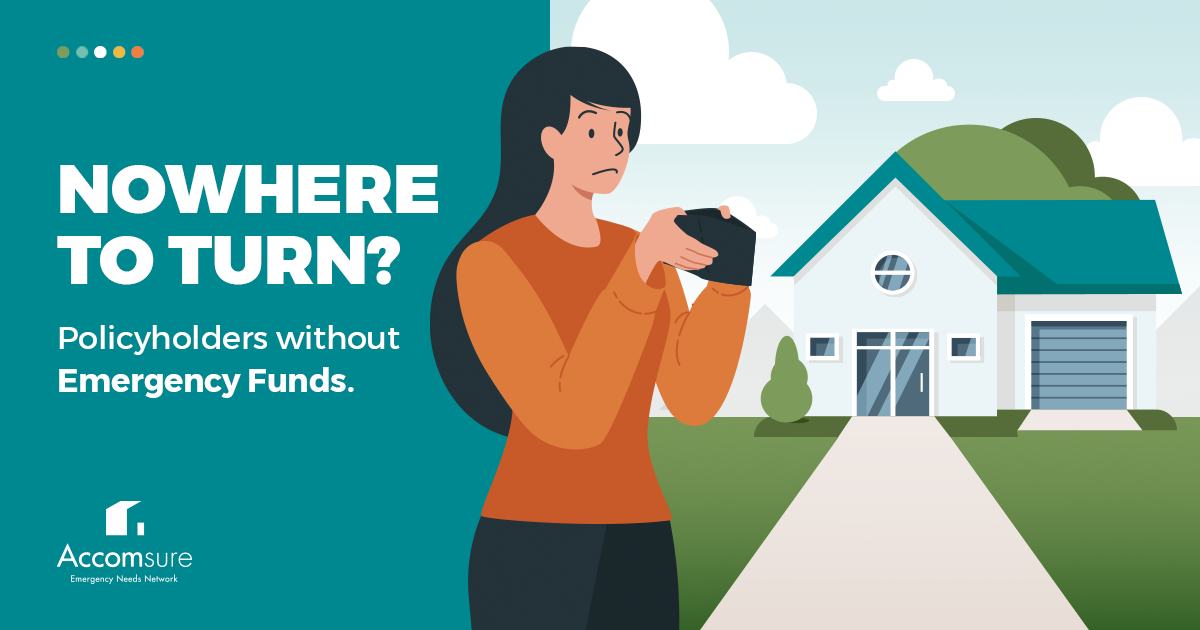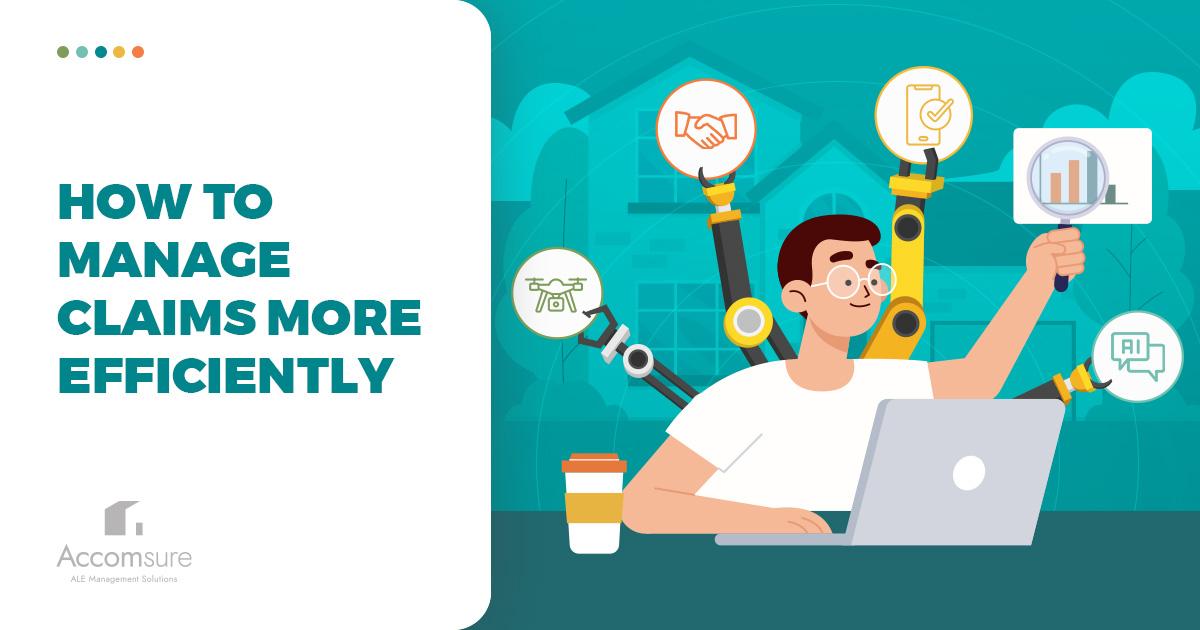It’s no surprise that COVID-19 has had a massive impact on the lives of Canadians and people around the world. However, the pandemic has left certain people more financially vulnerable than others, especially when unexpected disasters arise in the home.
For this article, we will take you through the journey of a policyholder who was not financially prepared for a pandemic and the loss of her home. This anonymized example represents the experiences of many Canadians who have been laid off due to the pandemic and are now unable to shoulder the cost of temporary accommodation following an unexpected disaster.
What happens when policyholders can’t afford ALE expenses after losing their job? How can adjusters support these policyholders in their time of need? The following story will outline how losing a home can be especially hard for policyholders without access to emergency funds and how Accomsure can provide a light at the end of the tunnel for policyholders facing this difficult situation.
Losing a Job
Stacy is a single mother who was working as a hairdresser when the COVID-19 pandemic struck. Due to pandemic government restrictions, Stacy was temporarily laid off. Though she qualified for emergency funding, she was still struggling to manage her expenses without her regular income and had to tap into her savings to make ends meet.

On average, 12.4% of workers were laid off each month from February 2020 to April 2020 (Policy Options). This left thousands of Canadians jobless, having to deal with the loss of their income, and struggling to stay on top of their expenses.
Further Disaster Strikes
While Stacy was already struggling to get by without her regular income, she never expected that her bad luck would continue….
Stacy decided to cook from home more often to save money on food. However, one day her at-home cooking caused a grease fire that quickly spread throughout her kitchen. This left Stacy and her child without a home and in desperate need of temporary accommodation.
At Accomsure, we find that disaster often strikes when you least expect it. This can leave policyholders unequipped to handle emergency expenses and uncertain about how to rebuild their lives.
A Lack of Emergency Funds
Due to losing her job, Stacy’s emergency fund was depleted. Though she had a credit card, she had almost reached her monthly limit to pay for her regular expenses. Stacy was not prepared to carry the ALE expenses following the disaster in her home, which left her in a difficult situation.

Even before the pandemic and the resulting economic downturn ensued, 1 in 4 Canadians did not have enough savings to get them through a two-month work interruption (Policy Options). Though around 89% of Canadians have access to a credit card, 15% have a credit spending limit under $2,000 (Finder). This can make it incredibly difficult to handle unexpected emergency living costs on top of the regular costs of living.
Nowhere to Turn?
Without a job, emergency savings, or a credit card to fall back on, Stacy was feeling lost and hopeless. She went to her adjuster for help, but it was difficult for the adjuster to provide her with all the support she needed.
It can often be difficult for adjusters to advance the claim when their policyholders are focused on their immediate needs. So, how can adjusters help policyholders who find themselves in this difficult situation?
Accomsure Can Help
At Accomsure, we are equipped to help policyholders with a range of challenges through every step of the home insurance claims process.
We understand that hotel and accommodation invoices can be extremely burdensome for stressed policyholders, especially those without emergency savings or access to emergency funds. Accomsure helps policyholders, such as the policyholder described in this article, by handling the billing on their behalf.
We are here to not only take the load off of your policyholders but also to free up time for adjusters so you can focus on handling the home insurance claim and helping your policyholders rebuild their lives in troubling circumstances.
Visit our website, send us an email, or call us at 1.888.212.5815 to submit a claim.




